Nội Dung Chính
(Page 101)
II. LANGUAGE
Pronunciation
Rhythm
1. Listen and repeat. Pay attention to the stressed words in the sentences. 🎧
1. 'Don't 'pick the 'flowers when you 'go to the 'park.
2. The 'students 'clean the 'school 'playground 'every week'end.
3. 'What's 'happening with the 'polar 'bears?
4. Did you 'watch the docu'mentary about 'air pol'lution?
2. Mark the stressed syllables in the words in bold. Then practise saying the sentences with a natural rhythm.
1. Don't feed the animals in the zoo while they are resting.
2. The teacher asked his students to focus on their work.
3. What were you doing when I rang you up an hour ago?
4. Are you reading the book about endangered animals in the world?
(Page 102)
Vocabulary
Environment
1. Match the words or phrases to their meanings.
| 1. biodiversity | a. the variety of plants and animals in a particular area |
| 2. habitat | b. animals and plants that grow in natural conditions |
| 3. ecosystem | c. changes in the world's weather, especially an increase in temperature |
| 4. wildlife | d. the natural environment in which a plant or an animal lives |
| 5. climate change | e. all the plants and animals in an area and the way they affect each other and the environment |
2. Complete the sentences using and the correct form of the words and phrases in 1.
1. _____ is important because plants and animals depend on each other to survive.
2. A new series of educational programmes shows the importance of _____ to humans.
3. Their work involves protecting and creating natural _____ for plants and animals.
4. Countries need to work together to deal with global issues such as deforestation and _____.
5. Pollution can have serious effects on the balance of _____.
Grammar
Reported speech
💡Remember!
We use reported speech when we want to tell someone what we or someone else said before.
When we use reported speech, we change personal pronouns, tenses of verbs, and adverbs of time.
Example:
'I will fly to Ho Chi Minh City tomorrow,' Nam said.
-> Nam said he would fly to Ho Chi Minh City the following day.
When reporting questions, we often use the verb ask and the word order for statements, and omit the question mark.
- Wh-questions:
Example:
'Where do you live?'
-> He asked me where I lived.
- Yes/No questions:
Example:
'Do you like the book?"
-> He asked me if I liked the book.
1. Choose the correct word or phrase to complete each sentence.
1. Minh's teacher asked him if he was / is ready to present the following day.
2. Nam's father suggested / denied that Nam should focus on one aspect of the problem.
3. Tuan said he would complete his project the following week / next week.
4. Mai asked / said her teacher where she could get the information from.
5. Phong said he handed / had handed in his project the previous day.
(Page 103)
2. Change these sentences into reported speech.
1. The burning of coal leads to air pollution,' Mrs Le explained.
2. 'I have to present my paper on endangered animals next week,' Nam said.
3. 'Do human activities have an impact on the environment?' Linda asked the speaker.
4. What environmental projects is your school working on?' Nam asked Mai.
5. 'I will read more articles before writing the essay, Nam,' Tom said.
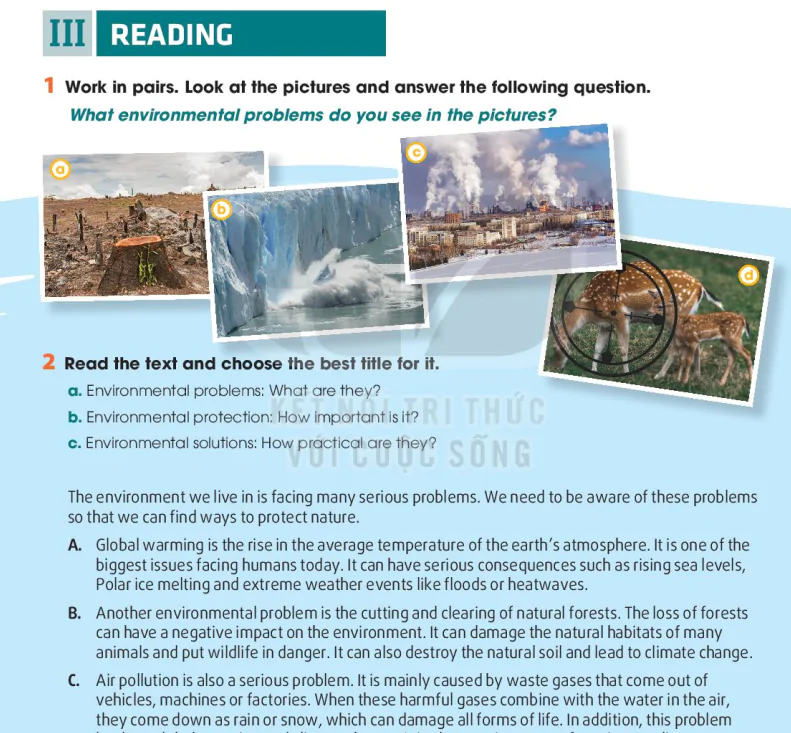
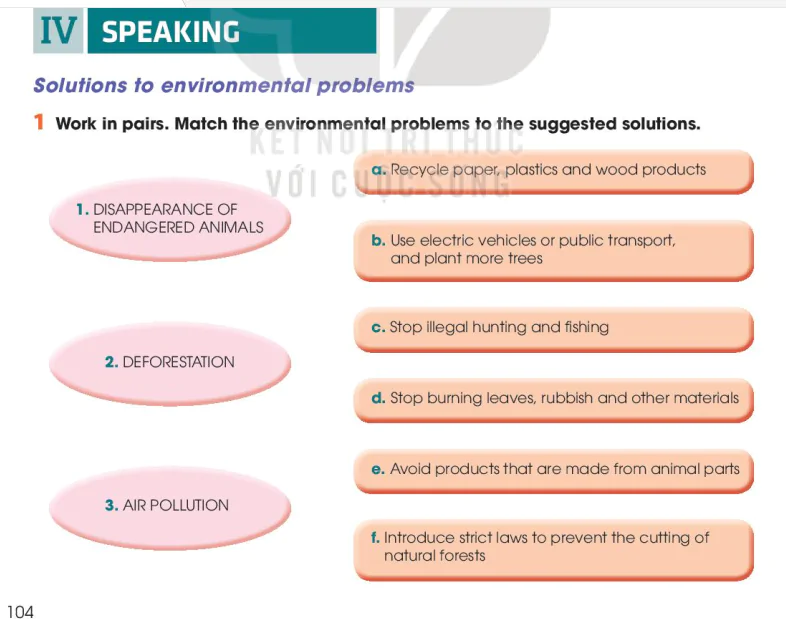
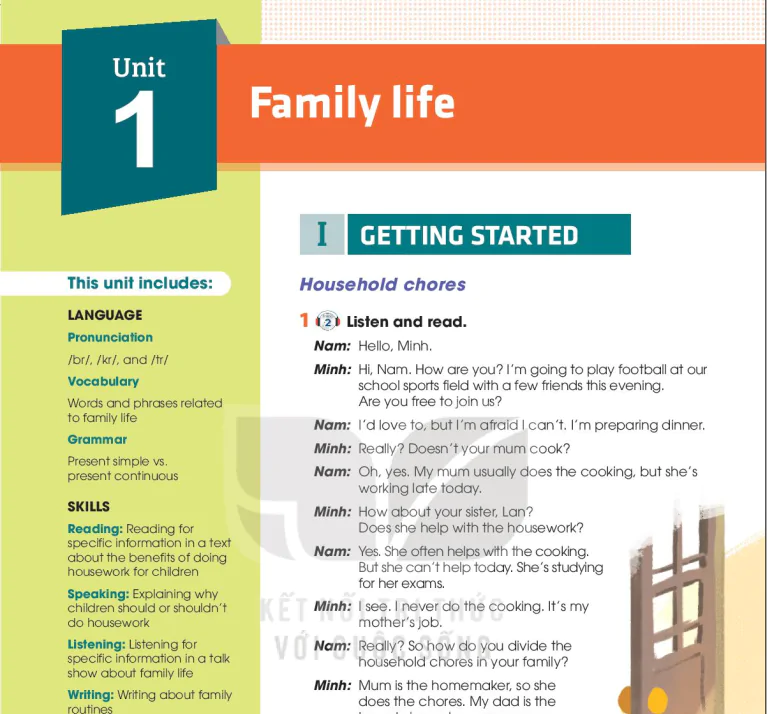
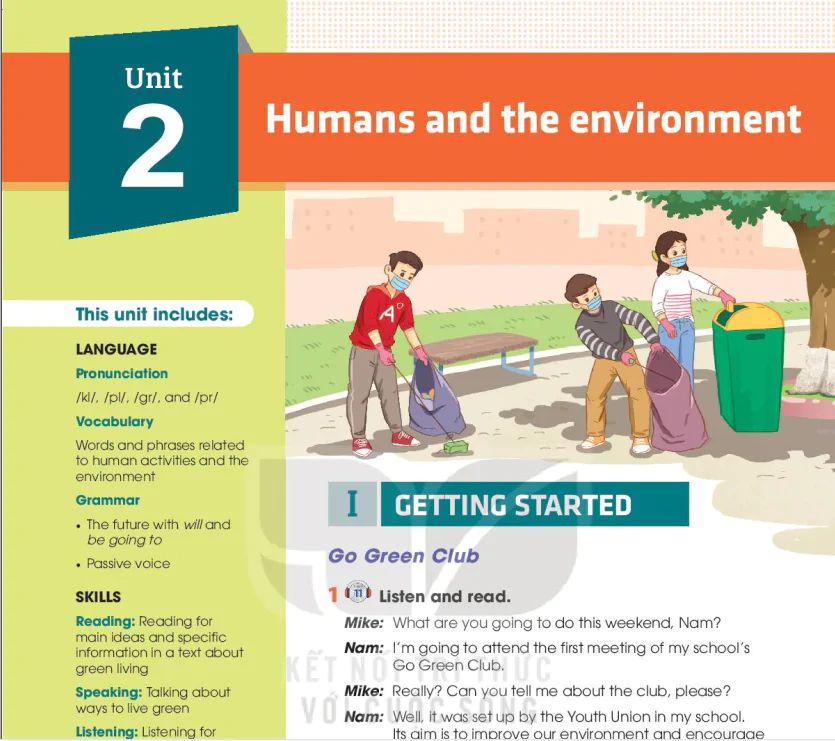
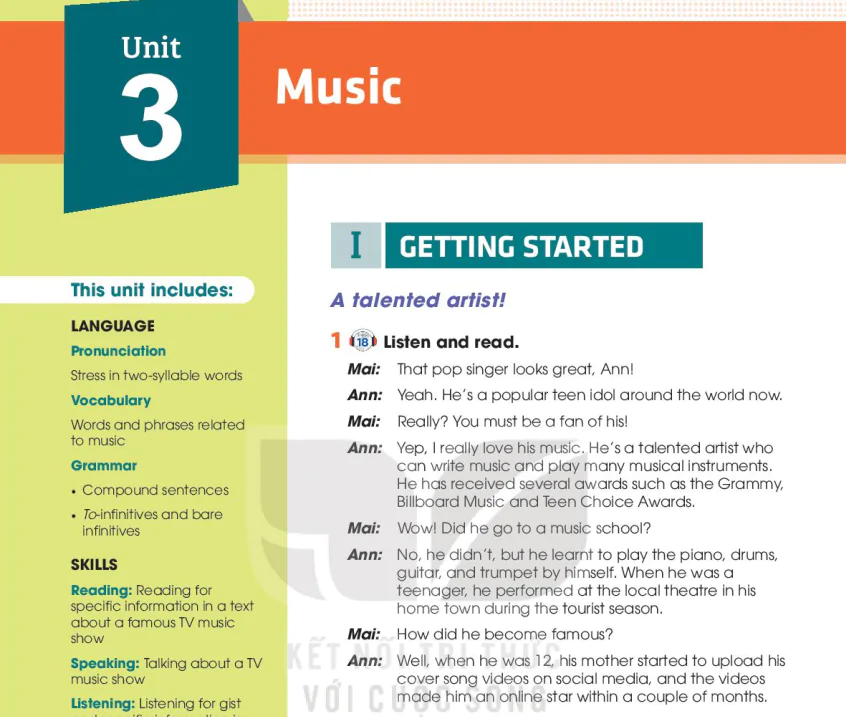
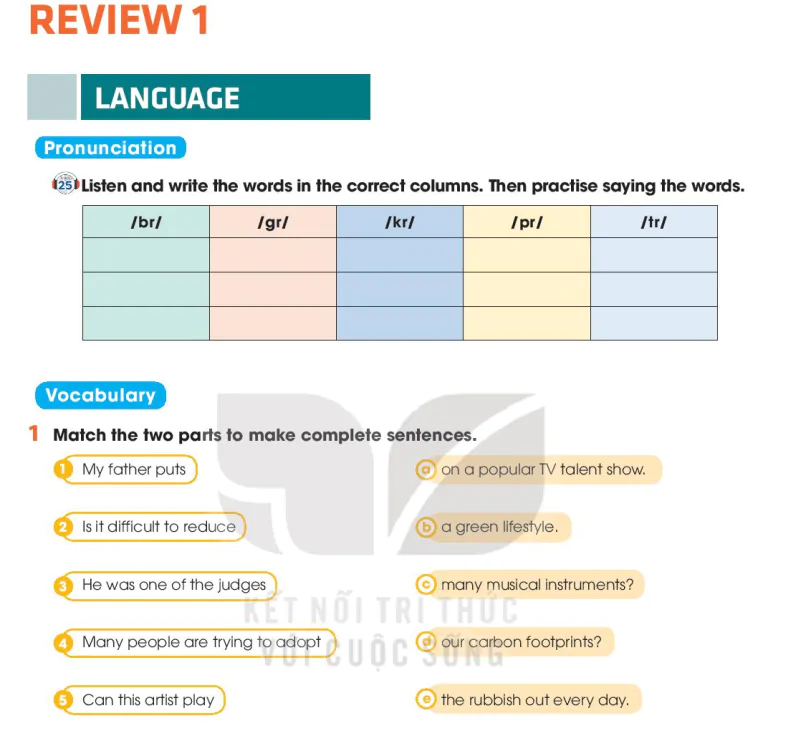
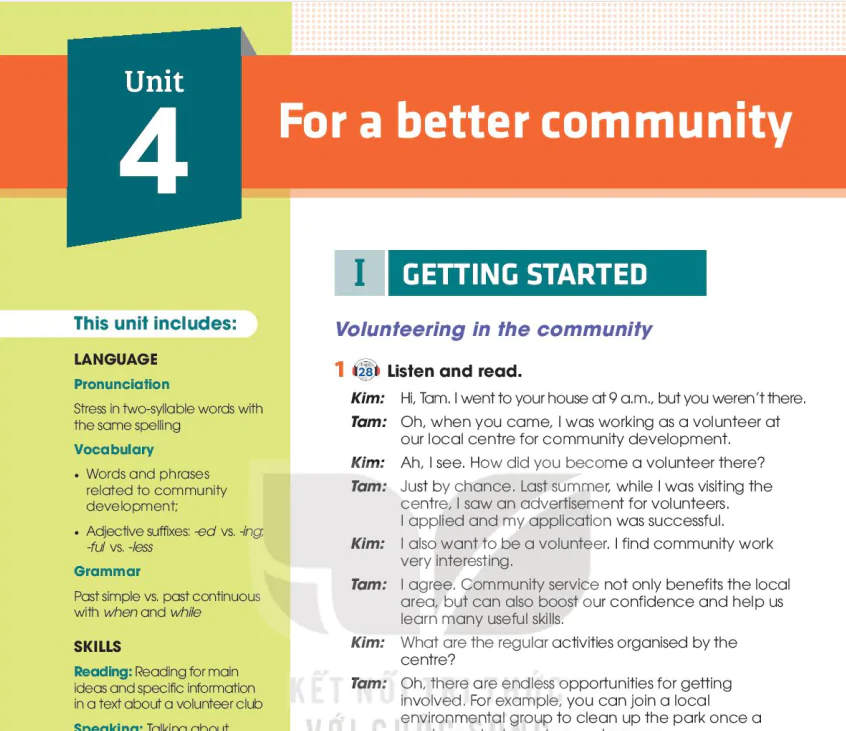
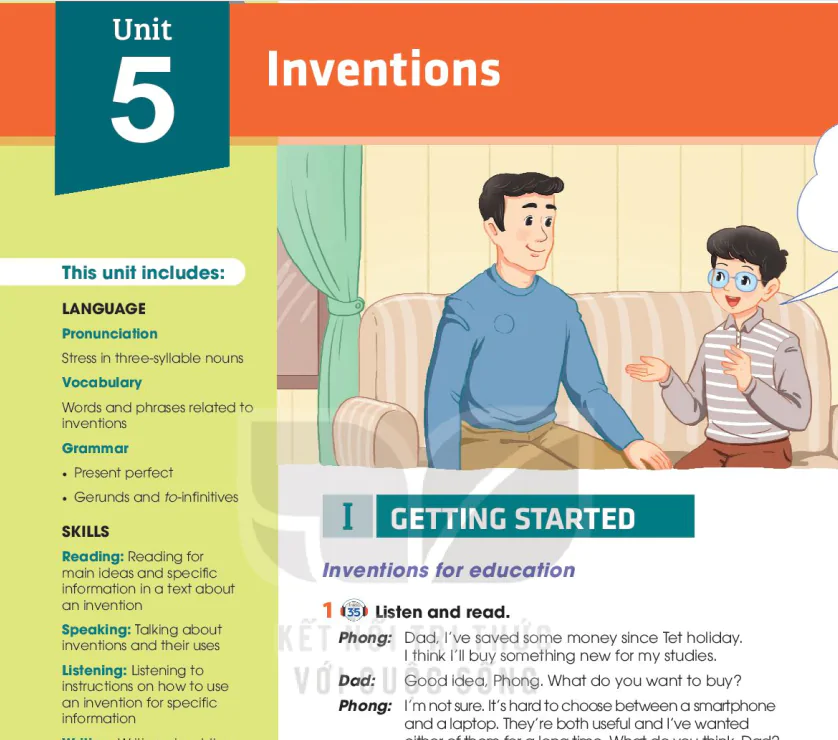
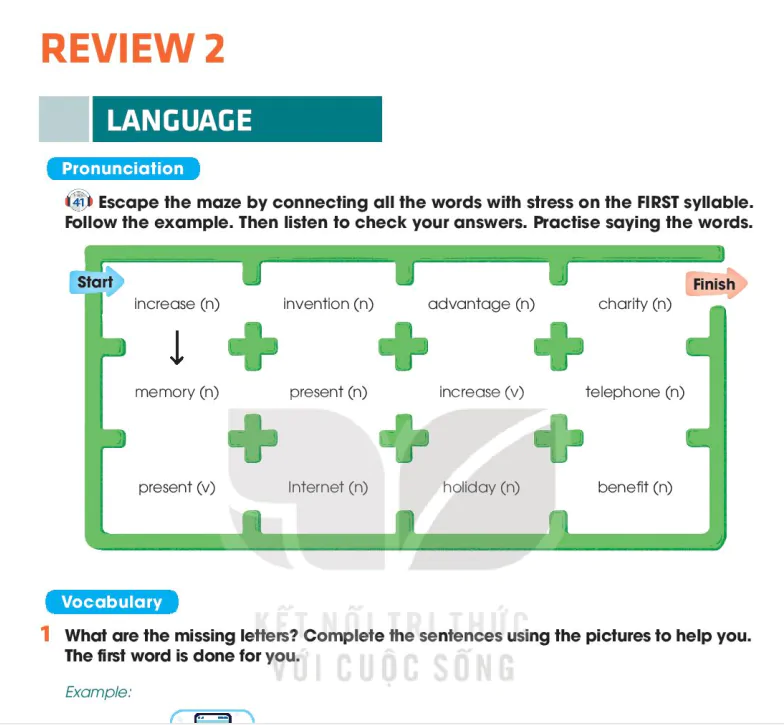
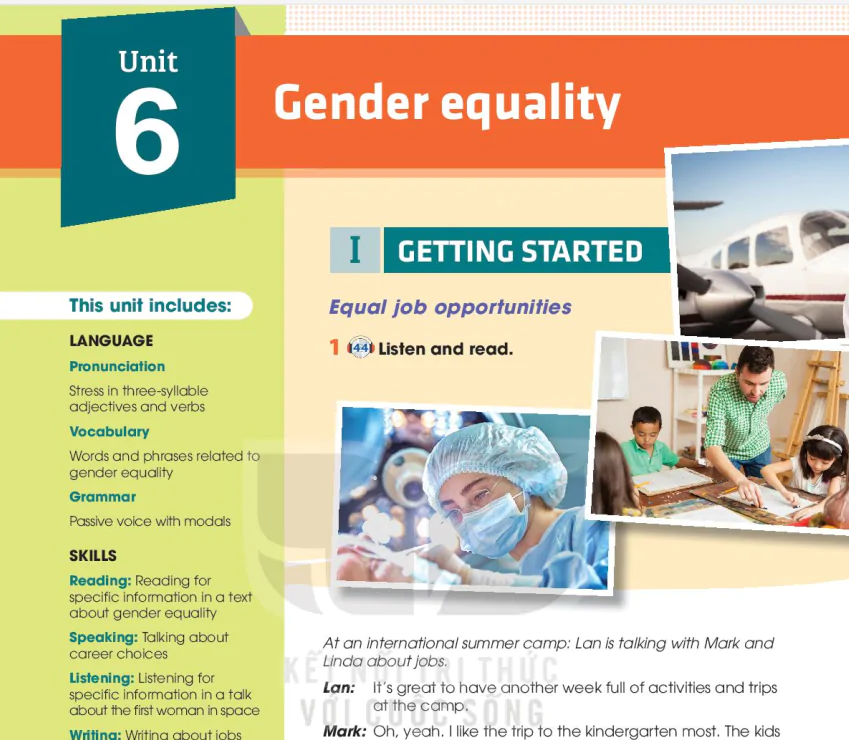
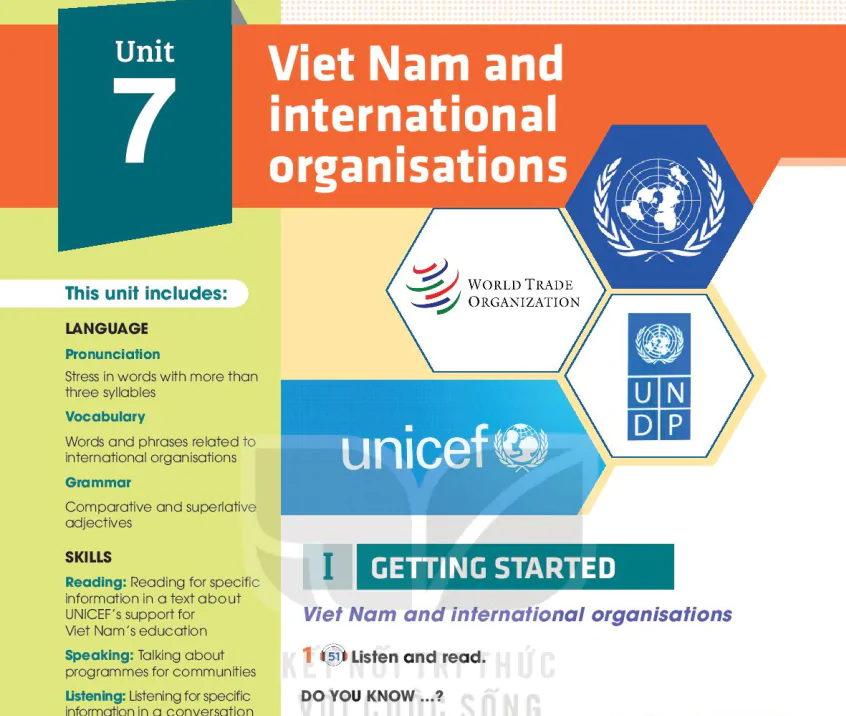
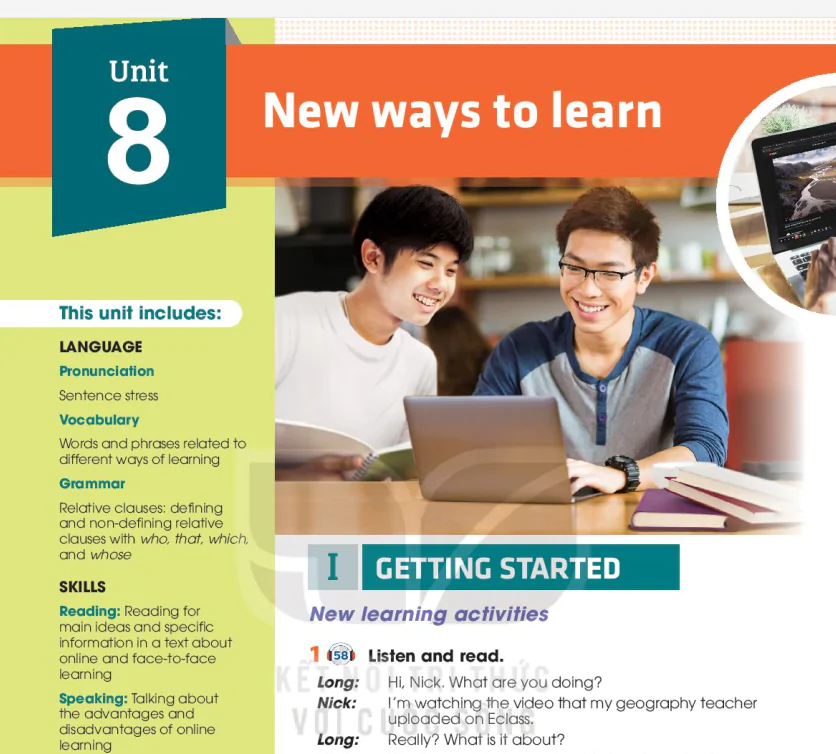
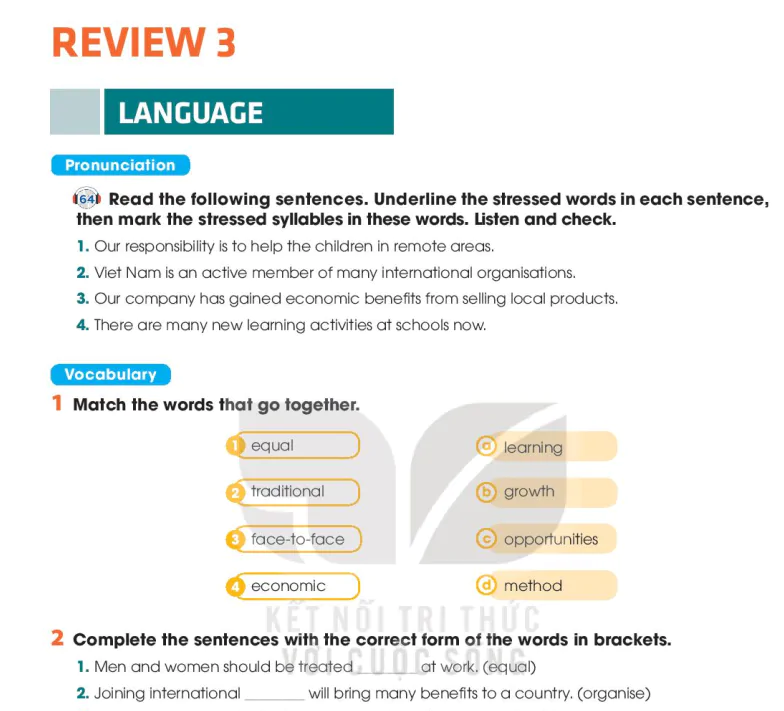
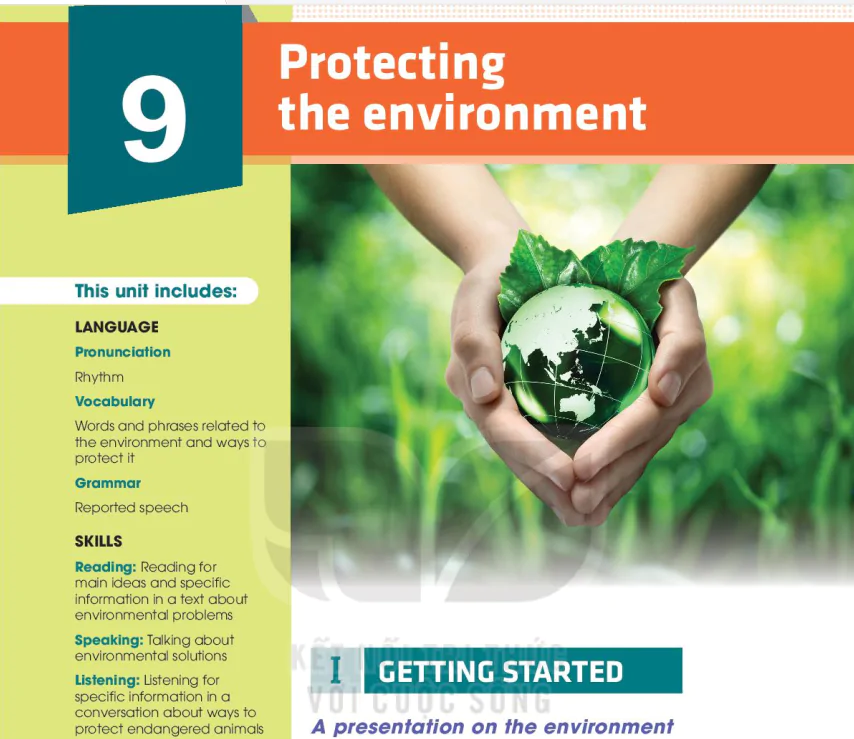
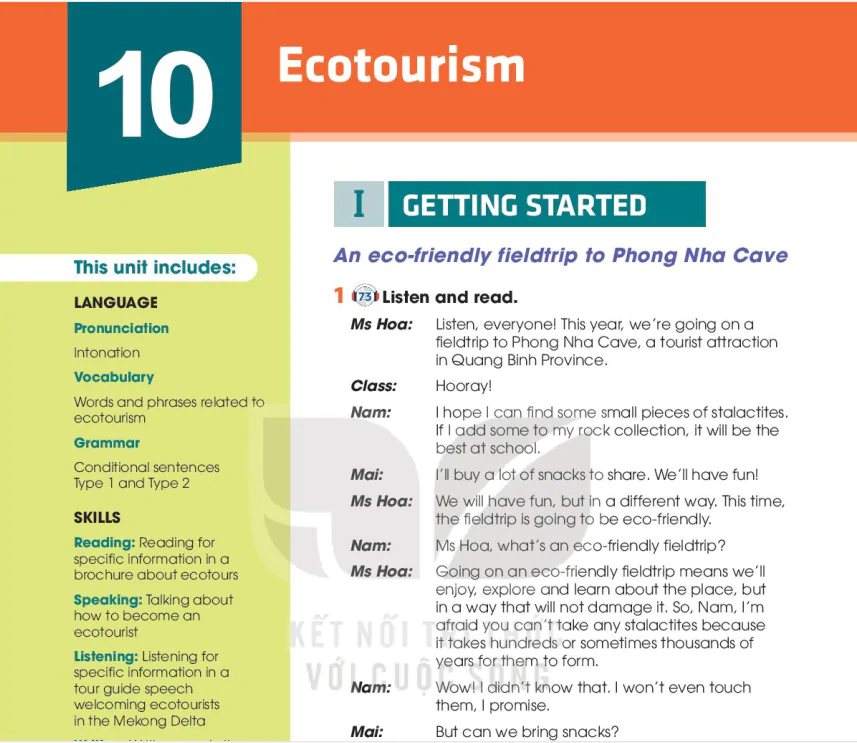
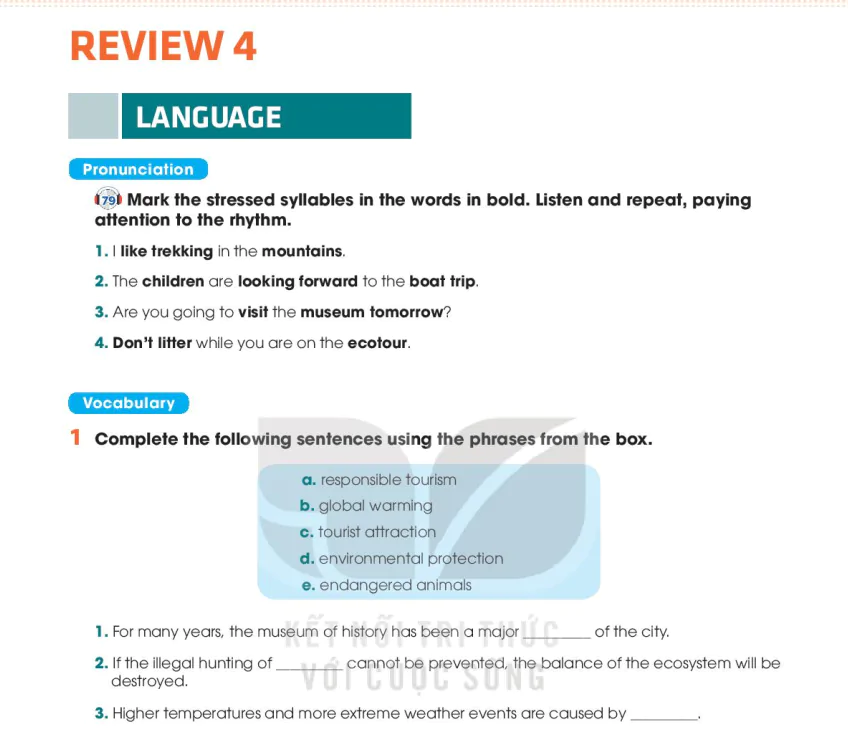
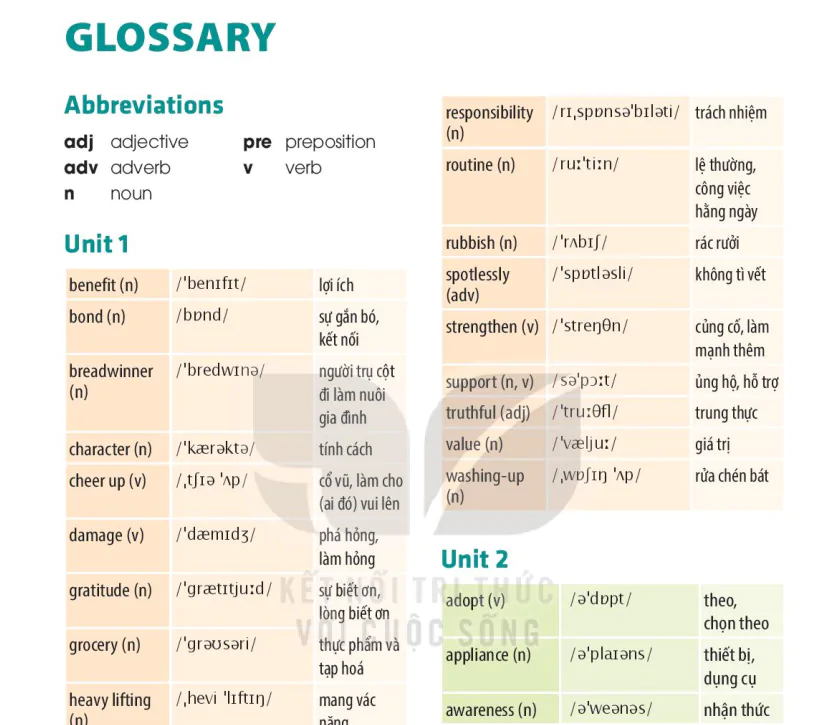


















Bình Luận
Để Lại Bình Luận Của Bạn